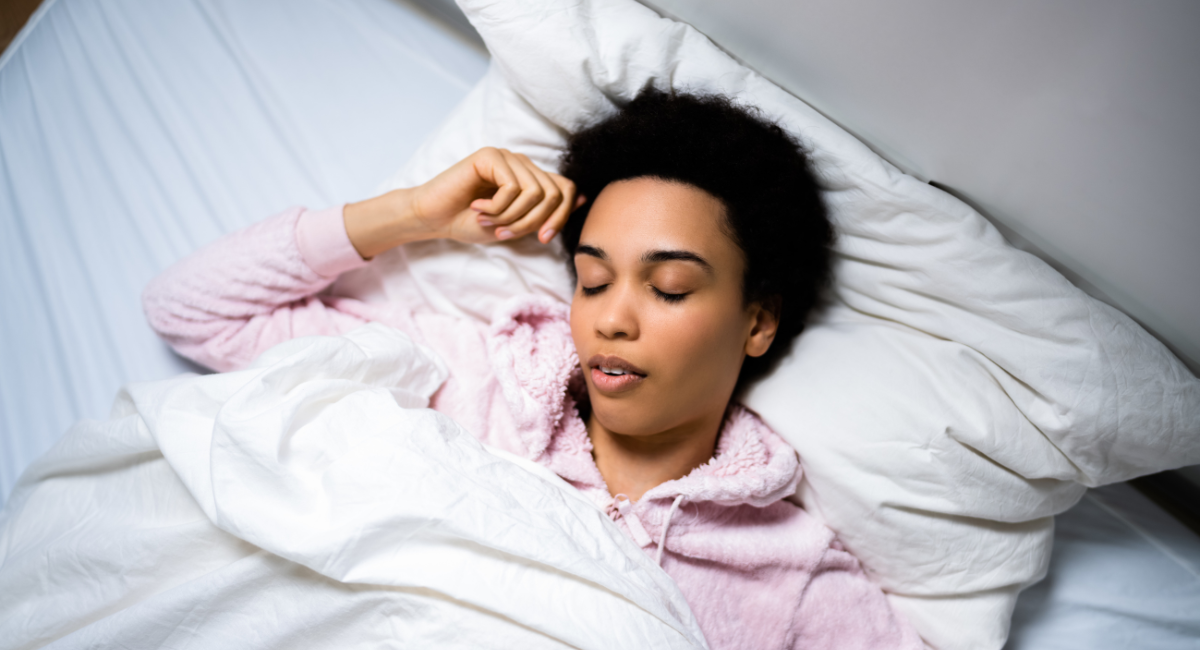 In our fast-paced, always-on world, a good night’s sleep has become an elusive luxury. As sleep deprivation reaches epidemic proportions, more people are turning to natural sleep aids for relief. Among these, melatonin and magnesium have gained popularity as gentler alternatives to prescription sleep medications. These supplements promise to help regulate sleep cycles and promote relaxation, offering hope to those who wonder how to fall asleep faster. But what exactly are these sleep aids, how do they work, and are they truly effective?
In our fast-paced, always-on world, a good night’s sleep has become an elusive luxury. As sleep deprivation reaches epidemic proportions, more people are turning to natural sleep aids for relief. Among these, melatonin and magnesium have gained popularity as gentler alternatives to prescription sleep medications. These supplements promise to help regulate sleep cycles and promote relaxation, offering hope to those who wonder how to fall asleep faster. But what exactly are these sleep aids, how do they work, and are they truly effective?
Tryon Medical Partners sleep medicine specialist Nurse Practitioner (NP) Sheets weighs in with all the information you need to know about sleep supplements and how to get better sleep.
Would I benefit from a sleep supplement like melatonin or magnesium?
“When patients come in wondering how to get more deep sleep, our goal is to improve how they feel during the day,” NP Sheets says. “We want to improve their quality of life. This can be done in many ways. It’s different for each person.”
NP Sheets and her team begin by taking a complete sleep history and identifying what the problem is: whether it’s falling asleep, staying asleep, or both. Often, the solution to how to get better sleep is sleep hygiene.
Sleep hygiene is a set of habits and environmental factors that can help people get a good night’s sleep. It can include:
- Having a consistent and calming bedtime routine that you follow each night
- Managing your light exposure by dimming lights a few hours before bed
- Using warm-light spectrum light bulbs, and setting your electronics to “night” mode
- Keeping your bedroom quiet, relaxing, and at a cool temperature
- Avoiding naps after mid-afternoon, and keeping naps around 20 minutes maximum
- Getting your daily exercise, 40 to 60 minutes of cardiovascular activity a day, so you drive the need for sleep at night
If an adjustment to sleep hygiene isn’t helping, NP Sheets recommends starting with a supplement like melatonin, which is one of the key drivers of our sleep cycle. Magnesium may help as well, but melatonin is often the best place to start.
“If you’re protecting that hour before bed, cutting down on screen time, and still unable to sleep, it might be time for something like melatonin.”
Why do I have trouble sleeping in the first place?
Unfortunately, it is very common for people to struggle falling asleep. NP Sheets and her team see this for a variety of reasons: not enough exercise, anxiety or stress, and poor sleep hygiene are often contributing reasons.
If you’re wondering how to fall asleep faster, NP Sheets recommends trying:
- Meditation, either a guided meditation or self-led
- Listening to a soothing audiobook
- Reading a chapter of a book with low light
- Taking a warm bath or hot shower
- Listening to a favorite, calming podcast
- Reading or listening to a bedtime story
- Avoiding watching the clock if you’re having trouble sleeping
“Often, a hot bath or shower can really help calm the body and mind down before sleep,” NP Sheets shares. “However, it does raise your internal body temperature, which can be activating, so make sure to do it in advance of bedtime.”
Is melatonin safe?
Melatonin, when taken the correct way, is a very safe sleep supplement to take every night. Melatonin isn’t habit forming. It has only mild side effects, including intense dreams or nausea, and those are rare if taking fewer than 5 milligrams. NP Sheets answer some common questions about the safety or melatonin:
- Does melatonin help you sleep? Melatonin is a hormone produced in our brain due to exposure to darkness, and it helps to regulate your circadian rhythm, or your body’s natural 24-hour cycle. Melatonin production peaks between 2 and 4 a.m. and then drops significantly when it’s time to wake up.
- How much melatonin is too much? It’s best to start by taking no more than 5 milligrams. NP Sheets advises starting with 1 to 3 milligrams a night, one to two hours before bedtime.
- How do I know which melatonin to take? Supplements are not regulated by the Food and Drug Administration (FDA) so NP Sheets recommends choosing melatonin brands that have a US Pharmacopeia (USP) label, which means their quality has been verified.
“Light exposure stops melatonin production so if you like to hit snooze, try to stop doing that,” NP Sheets advises. “As soon as you wake up, turn the lights on or open the blinds and put your feet on the floor. That’ll be the best way to wake up in the morning.”
How does magnesium help you sleep?
There are many benefits of taking magnesium at night for better night’s sleep:
- Regulating neurotransmitters. Magnesium helps maintain a balance of calming GABA (gamma-aminobutyric acid) and excitatory glutamate. This can help you feel calm and relaxed, which can lead to sleep.
- Regulating melatonin. Magnesium can help regulate melatonin production, which is a hormone that helps you sleep. People who are deficient in magnesium may have lower levels of melatonin.
- Relaxing muscles. Magnesium can help relax muscles, which can help you wind down and improve your sleep.
How much magnesium should I take?
NP Sheets advises that you proceed with caution, as more than 350 milligrams of magnesium a day can lead to problematic symptoms, such as nausea, diarrhea, and heart arrhythmia.
When should I avoid taking magnesium?
If you’re on antibiotics or heartburn medications, magnesium may interact negatively with them, so it’s best to avoid the supplement while on those medications.
How can I eat more magnesium naturally?
Magnesium can be found in foods such as:
- Dark chocolate
- Avocados
- Leafy greens
- Whole grains
- Nuts and seeds
- Fatty fish like salmon
If you think it’s time to try a supplement and have some questions, use MedChat or call Tryon Medical Partners today to finally get that deep sleep you deserve.

